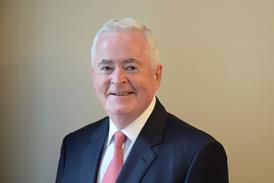Reading recent media reports you could be forgiven for thinking Unexplained Wealth Orders (UWOs) will only affect Russian oligarchs and wealthy Sheikhs with mansions in London and Surrey.

In fact UWOs can be applied to any property asset over £50,000 where there are reasonable grounds for suspecting criminal funds have been used.
UWOs are court orders at the disposal of agencies such as the HMRC, National Crime Agency and Serious Fraud Office (SFO), which require those that hold property to explain the nature and extent of their interest in a property; the origin of the asset; and how funds were obtained to pay for it. If a respondent fails to comply, this may result in property seizure and assets being frozen. Providing false or misleading statements is also a criminal offence punishable by imprisonment.
UWOs can be issued to individuals, companies and trusts. To obtain a UWO the authorities must demonstrate a reasonable belief that the respondent holds the property and that known sources of the respondent’s income would have been insufficient to obtain the property; that the person is a politically exposed person; or that there are reasonable grounds to suspect that the respondent, or a person ‘connected with’ the respondent, has been involved in serious crime in the UK or elsewhere.

UWOs have been introduced to make it easier to seize assets suspected of representing criminal property but some say they are unjust. They reverse the burden of proof so the respondent must demonstrate the asset was legally acquired and give the state power to seize private property without notice via an interim freezing order, on the basis of a suspicion only. If an interim freezing order is later discharged, compensation may be given but this is limited and requires evidence of loss and proof of ‘serious default’ on the part of the authority that applied for it.
Further, an interim freezing order may have a practical impact beyond the intended target. For example, it is not known to what extent an occupational tenant might be affected.
UWOs represent a new weapon in the battle against corruption and serious crime but it will be interesting to see how quickly other agencies begin to use them. SFO director David Green has indicated his agency will exercise caution until it has found the right case to use a UWO. Given these new measures are potentially wide in scope and draconian in nature, applications for them will need to be scrutinised carefully by the courts.






























No comments yet